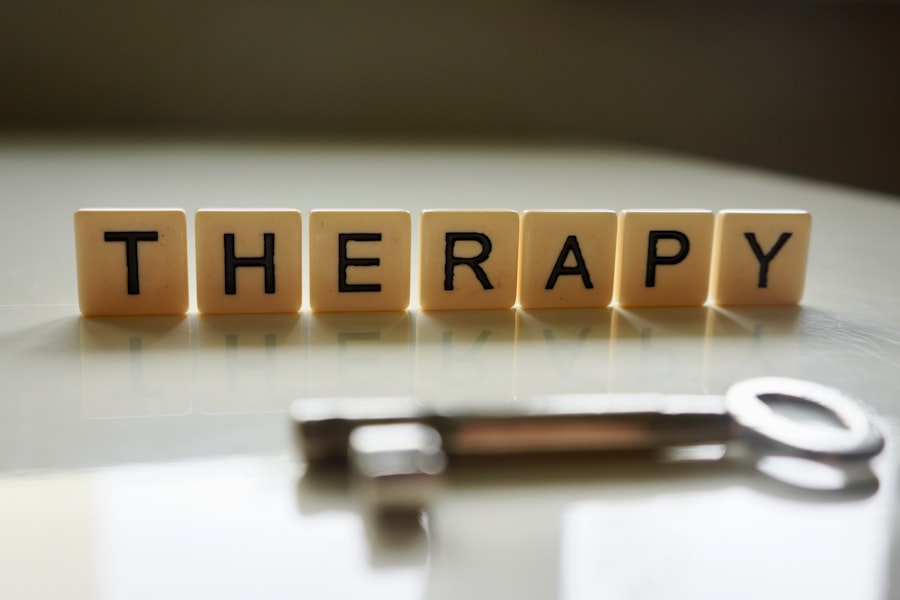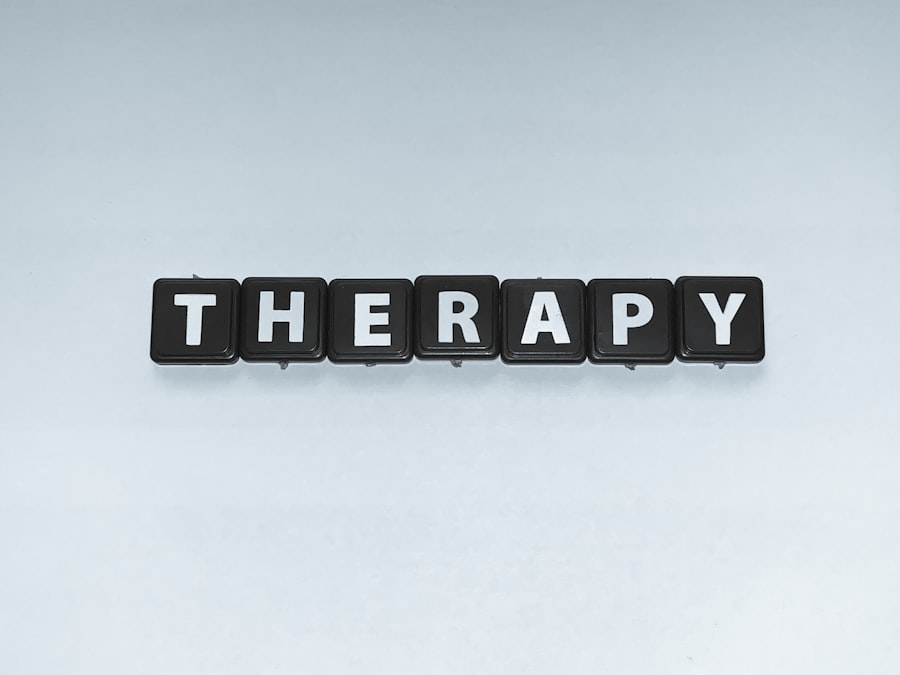As you navigate the complexities of mental health, the emergence of artificial intelligence (AI) in therapy presents a fascinating frontier. The integration of technology into therapeutic practices is not merely a trend; it signifies a profound shift in how mental health care is delivered. AI tools are being developed to assist therapists, enhance patient engagement, and provide support in ways that were previously unimaginable.
This evolution raises important questions about the nature of therapy itself and how these innovations can coexist with traditional methods. You may find yourself wondering how AI can contribute to such a deeply human experience as therapy. The answer lies in the potential for AI to augment the therapeutic process, offering new avenues for understanding and healing.
By analyzing vast amounts of data, AI can identify patterns and insights that might elude even the most experienced therapists. As you explore this topic, consider both the promise and the challenges that come with integrating AI into mental health care.
Key Takeaways
- AI in therapy has the potential to revolutionize mental health treatment by providing accessible and personalized support.
- Therapists play a crucial role in mental health by providing empathy, understanding, and human connection that AI cannot replicate.
- AI in therapy offers advantages such as scalability, 24/7 availability, and data-driven insights for personalized treatment plans.
- Limitations of AI in therapy include the inability to fully understand complex human emotions and the potential for bias in algorithms.
- Ethical considerations in AI therapy include privacy concerns, the need for informed consent, and the potential for AI to replace human therapists.
The Role of Therapists in Mental Health
Therapists play a crucial role in mental health care, serving as guides and support systems for individuals facing emotional and psychological challenges. Their training equips them with the skills to listen, empathize, and provide tailored interventions that address the unique needs of each client. You may appreciate that the therapeutic relationship is built on trust, where clients feel safe to explore their thoughts and feelings without judgment.
In this dynamic, therapists not only offer expertise but also create a space for healing through human connection. They help clients navigate their inner worlds, facilitating self-discovery and personal growth. As you reflect on this, consider how the nuances of human interaction—such as body language, tone of voice, and emotional resonance—play a vital role in effective therapy.
While AI can provide valuable insights and support, it cannot replicate the depth of understanding that comes from a genuine human connection.
Advantages of AI in Therapy

The advantages of incorporating AI into therapy are numerous and compelling. One significant benefit is accessibility; AI-driven platforms can provide mental health support to individuals who may not have access to traditional therapy due to geographical or financial constraints. You might find it encouraging that AI can offer immediate assistance through chatbots or virtual counseling sessions, making mental health resources more widely available.
Moreover, AI can enhance the therapeutic process by providing therapists with data-driven insights. For instance, machine learning algorithms can analyze client interactions and identify patterns that inform treatment strategies. This capability allows therapists to tailor their approaches more effectively, ensuring that clients receive personalized care.
As you consider these advantages, it becomes clear that AI has the potential to complement human therapists rather than replace them.
Limitations of AI in Therapy
| Limitations of AI in Therapy |
|---|
| 1. Lack of empathy and emotional understanding |
| 2. Inability to handle complex or severe mental health issues |
| 3. Privacy and data security concerns |
| 4. Dependence on technology and potential technical issues |
| 5. Limited ability to build trust and rapport with clients |
Despite its many advantages, AI in therapy is not without limitations. One major concern is the lack of emotional intelligence inherent in AI systems. While algorithms can process data and recognize patterns, they cannot truly understand human emotions or the complexities of individual experiences.
You may recognize that therapy often requires a level of empathy and intuition that AI simply cannot provide. Additionally, there are concerns about privacy and data security when using AI in mental health care. The sensitive nature of personal information shared during therapy necessitates stringent safeguards to protect client confidentiality.
As you ponder these limitations, it becomes evident that while AI can enhance certain aspects of therapy, it cannot fully replace the nuanced understanding and ethical considerations that human therapists bring to their practice.
Ethical Considerations in AI Therapy
The integration of AI into therapy raises important ethical considerations that must be addressed to ensure responsible use of technology in mental health care. One key issue is informed consent; clients must be made aware of how their data will be used and the limitations of AI-driven interventions. You may find it essential for therapists to maintain transparency about the role of AI in their practice, fostering trust between clients and practitioners.
Another ethical concern revolves around accountability. In cases where an AI system provides incorrect advice or fails to recognize a client’s distress, questions arise about who is responsible for the outcomes. As you reflect on these ethical dilemmas, consider how they highlight the need for clear guidelines and regulations governing the use of AI in therapy.
Ensuring that ethical standards are upheld will be crucial as this technology continues to evolve.
The Potential Impact of AI on the Therapy Industry

The potential impact of AI on the therapy industry is profound and multifaceted. As you observe the landscape of mental health care, you may notice a shift toward more technology-driven solutions that prioritize efficiency and accessibility. This transformation could lead to an increase in the number of individuals seeking help, as barriers to entry are lowered through digital platforms.
However, this shift also raises questions about the future role of human therapists. While AI can handle routine tasks and provide preliminary support, the need for skilled professionals who can navigate complex emotional landscapes remains paramount. You might consider how this evolution could lead to a redefinition of therapeutic roles, with therapists focusing more on high-level interventions while AI manages administrative tasks or initial assessments.
The Integration of AI and Human Therapists
The most promising approach to harnessing the benefits of AI in therapy lies in its integration with human therapists. Rather than viewing AI as a replacement for human interaction, you may find it more productive to see it as a tool that enhances therapeutic practices. By combining the strengths of both AI and human therapists, mental health care can become more effective and responsive to client needs.
In this integrated model, therapists can leverage AI-driven insights to inform their treatment plans while maintaining the essential human connection that fosters trust and understanding. You might envision a future where therapists use AI to analyze client data, track progress over time, and adjust interventions accordingly—all while providing empathetic support during sessions. This collaboration could lead to more personalized care and improved outcomes for clients.
The Effectiveness of AI Therapy
As you delve into the effectiveness of AI therapy, it’s important to consider existing research and case studies that highlight its potential benefits. Preliminary findings suggest that AI-driven interventions can be effective for certain populations, particularly those who may be hesitant to seek traditional therapy. You may find it encouraging that studies have shown positive outcomes for individuals using AI chatbots for mental health support, indicating that technology can play a valuable role in promoting well-being.
While some individuals may respond well to AI-driven interventions, others may require the nuanced understanding that only a human therapist can provide. As you reflect on this variability, consider how effectiveness may depend on individual preferences, needs, and circumstances.
The key takeaway is that while AI has shown promise, it should be viewed as one component within a broader spectrum of mental health care options.
The Importance of Human Connection in Therapy
At the heart of effective therapy lies the importance of human connection—a factor that cannot be overstated. You may recognize that many clients seek therapy not just for solutions but for understanding and validation of their experiences. The therapeutic relationship fosters a sense of safety and belonging that allows individuals to explore their emotions openly.
While AI can provide valuable resources and support, it lacks the ability to form genuine connections with clients. You might consider how empathy, compassion, and shared human experience are integral to healing processes. As you contemplate this aspect of therapy, it becomes clear that while technology can enhance certain elements of care, it cannot replace the profound impact of human interaction on mental health outcomes.
The Future of AI in Therapy
Looking ahead, the future of AI in therapy holds both promise and uncertainty. As technology continues to advance, you may anticipate further innovations that enhance the therapeutic experience for both clients and practitioners. From virtual reality exposure therapy to advanced predictive analytics, the possibilities are vast and exciting.
However, as you envision this future landscape, it’s crucial to remain mindful of the ethical considerations and limitations discussed earlier.
You might find it inspiring to think about how collaboration between technologists and mental health professionals can shape a future where both AI and human therapists work together harmoniously.
The Coexistence of AI and Human Therapists
In conclusion, the coexistence of AI and human therapists represents a transformative opportunity within the mental health landscape. As you reflect on this journey through the integration of technology into therapy, it’s clear that both elements have unique strengths that can complement one another. While AI offers efficiency, accessibility, and data-driven insights, human therapists provide empathy, understanding, and ethical considerations essential for effective care.
As you consider your own experiences with mental health care or those around you, remember that the future lies not in choosing one over the other but in finding ways for them to work together harmoniously. Embracing this coexistence could lead to a more inclusive and effective approach to mental health care—one where individuals receive comprehensive support tailored to their unique needs. Ultimately, as technology continues to evolve, so too will our understanding of what it means to heal and thrive in an increasingly complex world.
The ongoing debate about whether AI will replace human therapists is a topic of significant interest and concern. While AI has made strides in various fields, the nuanced and empathetic nature of therapy presents unique challenges for automation. An article on
